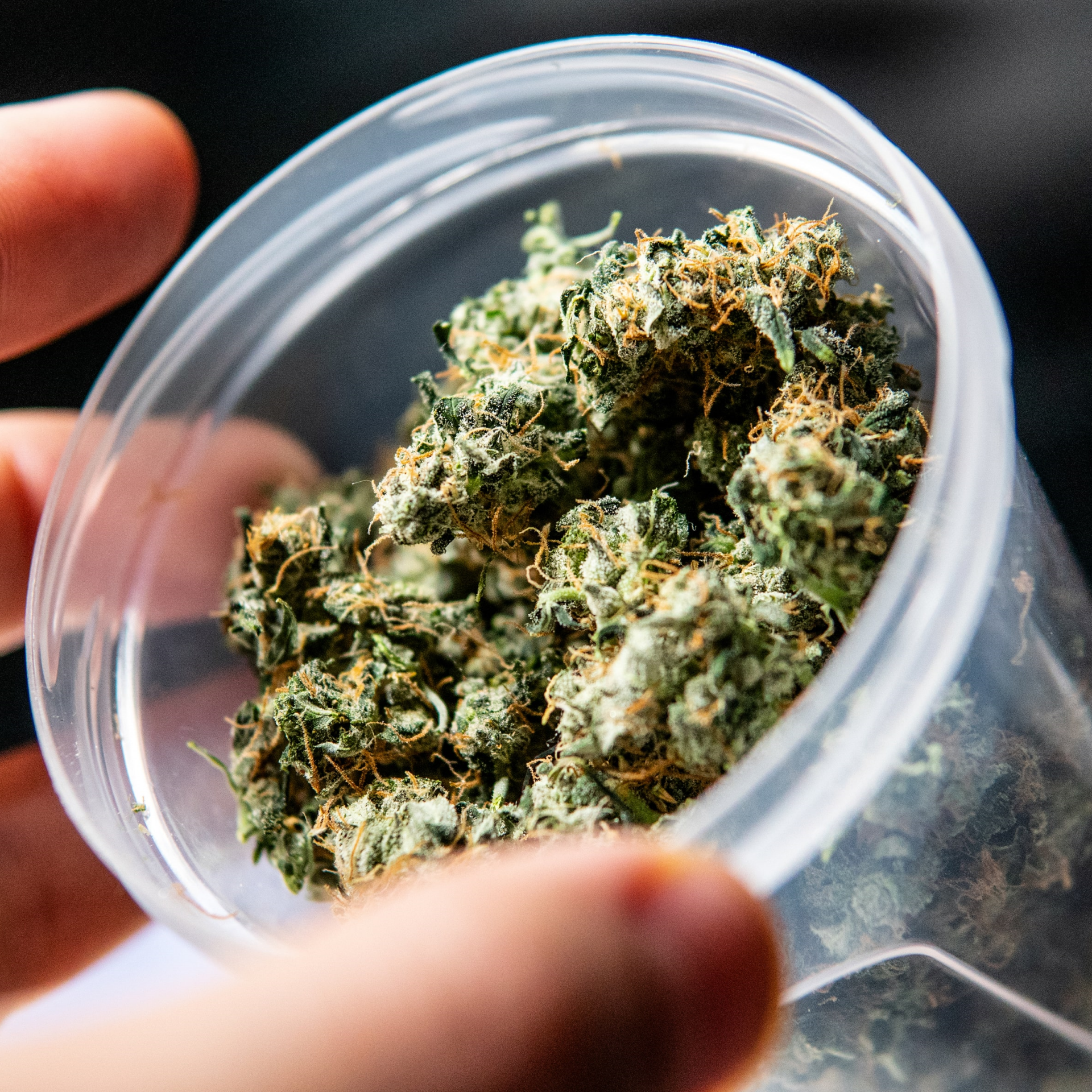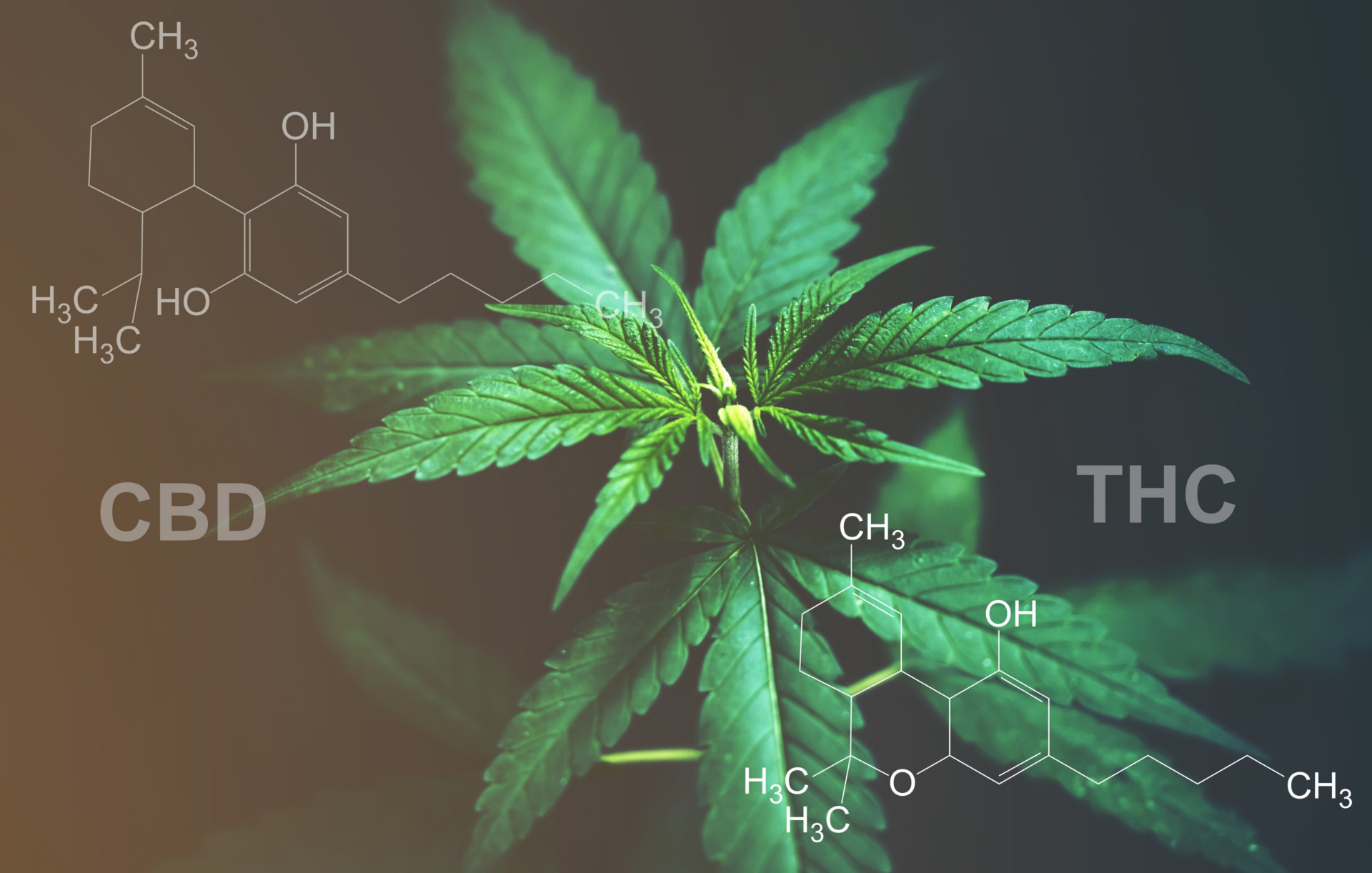Fear can make our bodies do all kinds of things: shiver, sweat, run, freeze, faint, even pee—all without our consent. These reactions begin in our brain as part of our bodies’ wired fear response. When we sense danger, a signal is sent to the amygdala. This almond-shaped cluster of neurons in our forebrains serves as the alert center for our bodies and primes us to either face the threat in front of us or run away from it.
Once danger subsides, signals to the amygdala relax, and our bodies return to a normal, less-heightened state. While we know a lot about what goes into triggering our fear response, we know a lot less about how to turn it off. And this is important because the inability to turn off inappropriate fear responses is associated with conditions like PTSD, phobias, and other anxiety-related disorders.
This is where cannabis comes into the picture: It turns out that cannabidiol (CBD)—and possibly tetrahydrocannabinol (THC)—may be able to affect our bodies’ fear response. This makes sense when we think of the anecdotal evidence that exists for cannabis and various mood disorders. This property could have medical applications, and research is already underway to better understand how cannabis’s components can be used to treat anxiety-related disorders.

The Endocannabinoid System Is Part of Our Fear Response
Those of you familiar with cannabis science know a little about the endocannabinoid system, the network of receptors located throughout the body that cannabis acts on to bring about its therapeutic effects.
The endocannabinoid system is made up of receptors, endocannabinoids, and enzymes. In the body, endocannabinoids are made when they’re needed; they attach to receptors, and once they’ve served their purpose, they’re broken down by enzymes. These endocannabinoids are similar to the cannabinoids found in cannabis, like THC.
Researchers think that CB1, one of the receptors in this system, is key to controlling our fear response. In fact, they’ve observed that mice without CB1 receptors have trouble controlling their fear.
Studies have also found that activating this receptor—either naturally via the body’s own cannabinoids or those found in cannabis—is key to turning off the fear response. Normally, anandamide, an endocannabinoid, attaches to CB1. Once it’s served its purpose, it’s broken down by an enzyme known as fatty acid amide hydrolase (FAAH).
Knowing all of the above, researchers decided to see what would happen if they turned off FAAH. In other words, they prevented FAAH from breaking down anandamide in mice. They found that the mice recovered from fear faster and that these actions were traceable all the way back to the amygdala.
An older study in 2009 by the same researchers could offer more insight on FAAH. In some folks, the FAAH enzyme is more active, and in others, the enzyme is less active. The researchers think that this activity is due to a difference in DNA. In the study, those whose DNA was coded for less active FAAH were able to overcome their fear response more quickly.
In other words, because FAAH was less active, there was more anandamide in their system available to attach to CB1 receptors, making it easier for these people to override their fear response—at least in theory.

THC & CBD Also Affect the Fear Response
So, what does this all have to do with cannabis? Well, as it turns out, THC has a similar structure to anandamide, and it often attaches to the CB1 receptor.
Additionally, some studies suggest CBD can prevent the FAAH enzyme from breaking down anandamide. Both of these abilities suggest that these cannabis components could help folks whose brains have a hard time shutting down inappropriate fear responses.
The effects of both THC and CBD on fear response have been studied. So far, research has shown that THC may encourage the brain to shut down learned fear responses in humans. And more recent studies in people suggest that it may make the process of overcoming fear easier.
Because CBD shows a lot of promise in the treatment of anxiety-related disorders, a lot of preclinical research has been done on the topic. Collectively, this research suggests that CBD can not only help stop the body’s fear response, it can also blunt the overall bodily reaction to fear and the way the brain remembers past fear-inducing events.
These findings make CBD seem like a good additional option to traditional therapies for anxiety-related disorders because it may have lasting positive effects.
So far, the studies done on THC and CBD are promising, but we still don’t have a full grasp of the mechanism behind these positive outcomes. CB1 and FAAH are likely at play, but there are other parts of the endocannabinoid system that could be responsible as well: A recent study in Biological Psychiatry found that people with PTSD have elevated levels of 2-arachidonoylglycerol (2-AG), another endocannabinoid, in their brains, but their FAAH and anandamide levels were normal.
Results like this highlight how cannabis science is always changing. Overall, it’s obvious that more research is needed. But given that anxiety and anxiety-related disorders are the most common form of mental illness in the U.S., there are many people who can’t afford to wait for that research to be more conclusive. This is why cannabis communities like HelloMD—where people can share their experiences and offer support—are helpful and important.
If you’re new to cannabis and want to learn more, take a look at our Cannabis 101 index of articles. HelloMD can help you get your medical marijuana recommendation; it’s easy, private, and 100% online.






